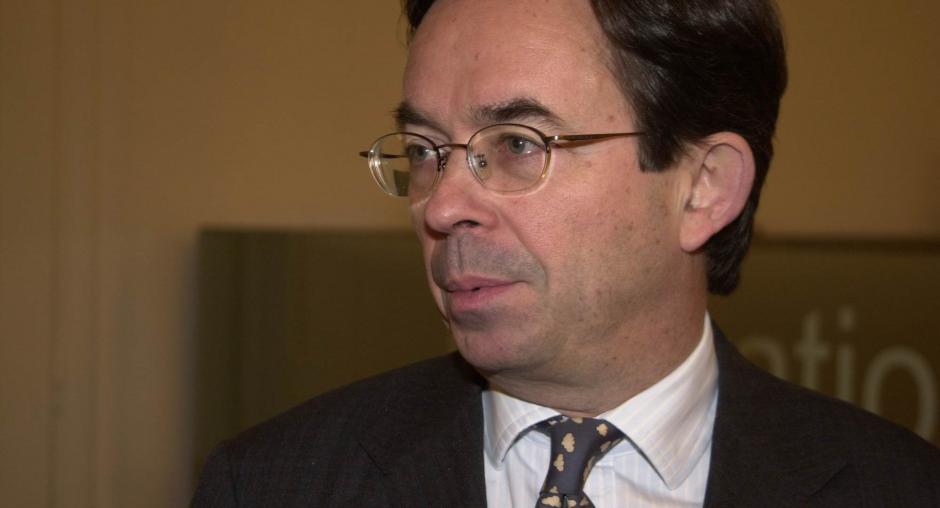Newsroom
OSCE/ODIHR: In times of conflict, respect for human rights and humanitarian law must be top priority
GENEVA 3 April 2003

ODIHR Director Strohal addressed the UN Human Rights Commission on 3 April 2003. (OSCE/Alexander Nitzsche) Photo details
GENEVA, 3 April 2003 - The Director of the OSCE's Office for Democratic Institutions and Human Rights (ODIHR), Ambassador Christian Strohal, today underlined in a statement to the UN Human Rights Commission that respect for human rights and humanitarian law must be a top priority, particularly in times of armed conflict.
"In view of the current international context, with war in Iraq, respect for human rights, humanitarian and refugee law is of paramount importance," said Ambassador Strohal. "Indeed, the need for intensified co-operation in promoting and protecting human rights and fundamental freedoms has never been stronger than today."
In his statement, Ambassador Strohal also addressed other current issues the ODIHR is involved in, including the fight against trafficking in human beings, the combating of terrorism in line with human rights standards, and the prevention of torture - phenomena that all constitute a threat to security.
The ODIHR Director expressed his concern about the lack of longer-term commitment and the growing trend of following certain fashions in the human rights domain. "There is a tendency to rely on responses that sound good today and are discarded tomorrow," he said. What is needed instead, he stressed, is co-ordinated messages from the international community, clear priorities and a common international agenda for protecting and promoting human rights. This must involve governments, international organizations and civil society. The ODIHR Director underlined the crucial role NGOs play as human rights defenders: "They deserve and need our full support."
Ambassador Strohal concluded his statement by emphasizing that the ultimate benchmark for measuring the international community's success in promoting human rights must be the concrete improvements achieved for the people concerned: "Whatever we do has to be measured against what we achieve," he said.
"In view of the current international context, with war in Iraq, respect for human rights, humanitarian and refugee law is of paramount importance," said Ambassador Strohal. "Indeed, the need for intensified co-operation in promoting and protecting human rights and fundamental freedoms has never been stronger than today."
In his statement, Ambassador Strohal also addressed other current issues the ODIHR is involved in, including the fight against trafficking in human beings, the combating of terrorism in line with human rights standards, and the prevention of torture - phenomena that all constitute a threat to security.
The ODIHR Director expressed his concern about the lack of longer-term commitment and the growing trend of following certain fashions in the human rights domain. "There is a tendency to rely on responses that sound good today and are discarded tomorrow," he said. What is needed instead, he stressed, is co-ordinated messages from the international community, clear priorities and a common international agenda for protecting and promoting human rights. This must involve governments, international organizations and civil society. The ODIHR Director underlined the crucial role NGOs play as human rights defenders: "They deserve and need our full support."
Ambassador Strohal concluded his statement by emphasizing that the ultimate benchmark for measuring the international community's success in promoting human rights must be the concrete improvements achieved for the people concerned: "Whatever we do has to be measured against what we achieve," he said.
